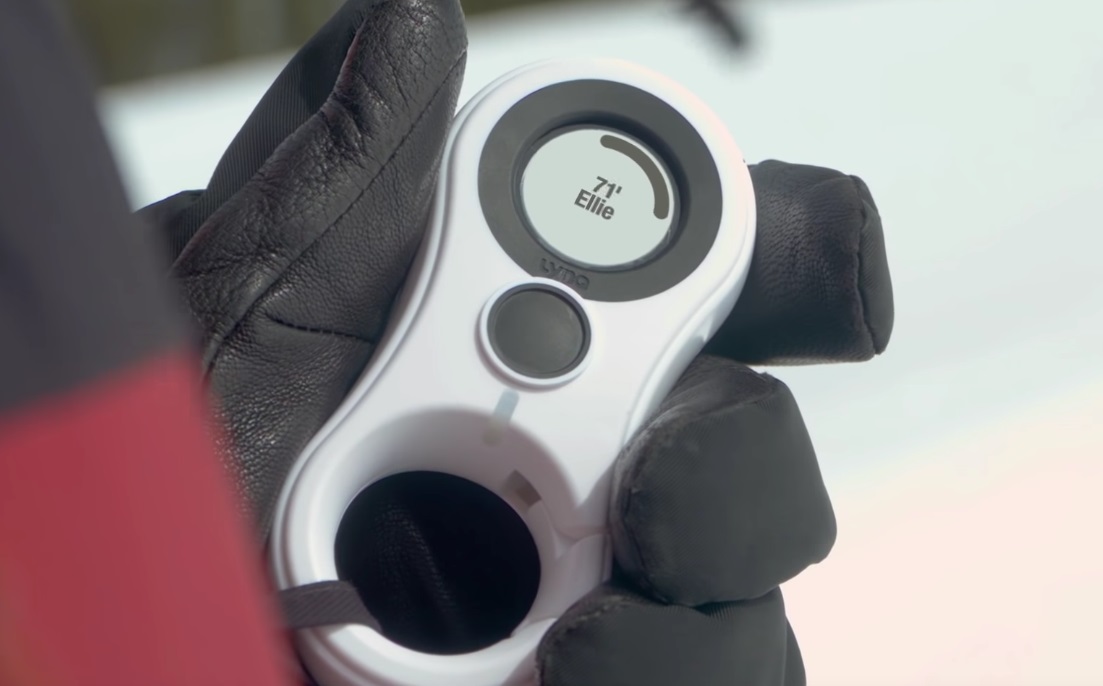Music
Trailers
DailyVideos
India
Pakistan
Afghanistan
Bangladesh
Srilanka
Nepal
Thailand
StockMarket
Business
Technology
Startup
Trending Videos
Coupons
Football
Search
Download App in Playstore
Download App
Best Collections
Technology

All right, gang: The honeymoon's officially over. We've oohed. We've ahhed. We've talked about Android P's most noteworthy productivity features. Now it's time to step back, get real, and talk about some of the software's less impressive elements — because the truth is, for all of its positives, Android P has an awful lot of, well, awful stuff.
Now, let's be clear: Perspective here is critical. This is only the first public beta of the Android P release, so these sorts of rough edges are absolutely to be expected. We'll hold onto hope that Google will iron out the kinks and get all these details fixed up and figured out by the time the final Android P software rolls around later this summer. Otherwise, we might find ourselves feeling a bit of Lollipop déjà vu.
- Details
- Category: Technology
Read more: 10 annoying things about Android P (that'll hopefully be fixed soon)
Write comment (97 Comments)
GPS has been with us for many years, and this is what most consumers think about when they hear the term location-based services (LBS). While the satellite-based routing capability needed to help us get directions will remain an important capability for the foreseeable future, location-based services is morphing into something that is well beyond what the original creators envisioned.
Indeed, as we progress to a more autonomous world, the future will be driven by a required knowledge of location, both internally and externally to our immediate environment. This includes in-building and other enclosed spaces, something GPS is not capable of providing. Further, location will be used as a filter for providing many forms of additional related data. Knowing whataround us is the only way we can operate autonomous &things& as well as mobile devices doing real work. Finally, the notion of what is a map is changing dramatically as high-resolution images, environmental factors, and augmented reality/virtual reality (AR/VR) capability make their way into location-enabled apps.
- Details
- Category: Technology
Read more: Location-based services move beyond mobile and into enterprise apps
Write comment (92 Comments)My boss& boss& boss was on CNBC this morning toutingVerizon‘s new 5G services and naming Los Angeles as the second city in America to be treated to a commercial rollout of the new networking technology.
&I think we&re a lot closer than people think,& says Verizon chief executive Lowell McAdam of the nationmove to the higher speed 5G networks. &We&re locking in on four this year,& McAdam said of the cities that will receive 5G tech from Verizon.
McAdam also named Los Angeles as the second of four cities that will receive 5G rollout from Verizon. &We bought 36 million miles of fiber so we can have big pipes feeding the cells. we will have hundreds of megahertz of bandwidth to deliver the whole suite of services of 5G,& McAdam said.
&We&ll have 1,000 cell sites up and operating on the global standard,& McAdam said on the cable network.
McAdam also name-checked Bostonmayor when listing the municipal leaders who&ve& been most receptive to working with the technology company on bringing new networking technology to consumers.
Verizon first announced its plans in early 2018 to begin bringing 5G to the masses. It had initially named Sacramento, Calif. as the first market to receive the technology.
McAdam hinted at a regimented implementation that would see 5G home networking services make their way to consumers first for fixed wireless applications before mobile wireless wends its way to consumers in the first quarter of 2019.
In February, AT-T said that Atlanta, Dallas and Waco, Tex. would be the first of 12 cities to receive 5G technology, while Sprint is bringing its 5G services to Kansas City, Phoenix, and New York City (the millennium capital of the world).
- Details
- Category: Technology
Read more: Verizon names Los Angeles as the second of four cities to receive 5G rollout before 2019
Write comment (96 Comments)Lime, the electric scooter and bike company, is looking to raise up to $500 million in new funding, Axios reports, citing sources. The round could come in the form of both equity and debt, according to Axios.
To date, Lime has raised $132 million from investors. Its most recent round was just in February, when it raised $70 million from Fifth Wall. I&ve reached out to Lime about this potential new round and will update this story if I hear back.
Earlier this month, Lime announced a partnership with Segway to build version two of its electric scooters.Lime, along with its competitors Bird and Spin, all ultimately rely on Ninebot, a Chinese scooter company that has merged with Segway. Ninebot is backed by investors including Sequoia Capital, Xiaomi and ShunWei.
Without taking into account Limepotential round, herewhere Lime compares to Bird and Spin.
The electric scooter space has been under scrutiny as of late — partly due to the fact that Bird, Spin and Lime deployed their respective scooters without explicit permission in San Francisco back in March.
Less than one month ago, the San Francisco Municipal Transportation Authority announced its permitting process for electric scooters. You can read more about that here.
And if you want the full breakdown of what the deal is in San Francisco as it pertains to electric scooters, herethe story.
- Details
- Category: Technology
Read more: Lime is reportedly trying to squeeze up to $500 million out of VCs
Write comment (92 Comments)Shortly after Uber announced the end of its forced arbitration policy for individual claims of sexual assault or harassment by Uber drivers, riders or employees, Lyft has done the same, Recode first reported. This means anyone who alleges sexual misconduct at the hands of Lyft drivers, riders or employees won&t have to argue their case behind closed doors. Instead, they can take the claim straight to court.
&Lyft has a longstanding track record of action in support of the communities we serve, from our commitment to the ACLU to standing up for pay equity and racial equality,& a Lyft spokesperson told TechCrunch. &The #metoo movement has brought to life important issues that must be addressed by society, and we&re committed to doing our part. Today, 48 hours prior to an impending lawsuit against their company, Uber made the good decision to adjust their policies. We agree with the changes and have removed the confidentiality requirement for sexual assault victims, as well as ended mandatory arbitration for those individuals so that they can choose which venue is best for them. This policy extends to passengers, drivers and Lyft employees.&
As the Lyft spokesperson noted in their comment, Uber made the decision to drop mandatory arbitration about 48 hours before the company had to respond to a lawsuit filed by 14 women who alleged they were assaulted by their drivers. The women also asked Uber to waive its arbitration clause.
- Details
- Category: Technology
Read more: Lyft also ends arbitration policy for sexual assault claims
Write comment (91 Comments)If you&ve ever been hiking or skiing, or gone to a music festival or state fair, you know how easy it is to lose track of your friends, and the usually ridiculous exchange of &I&m by the big thing&-type messages. Lynq is a gadget that fixes this problem with an ultra-simple premise: it simply tells you how far and in what direction your friends are, no data connection required.
Apart from a couple of extra little features, thatreally all it does, and I love it. I got a chance to play with a prototype at CES and it worked like a charm.
The peanut-shaped devices use a combination of GPS and kinetic positioning to tell where you are and where any linked Lynqs are, and on the screen all you see is: Ben, 240 feet that way.

Or Ellie.
No pins on a map, no coordinates, no turn-by-turn directions. Just a vector accurate to within a couple of feet that works anywhere outdoors. The little blob that points in their direction moves around as quick as a compass, and gets smaller as they get farther away, broadening out to a full circle as you get within a few feet.
Up to 12 can link up, and they should work up to three miles from each other (more under some circumstances). The single button switches between people you&re tracking and activates the devicefew features. You can create a &home& location that linked devices can point toward, and also set a safe zone (a radius from your device) that warns you if the other one leaves it. And you can send basic preset messages like &meet up& or &help.&
Itgreat for outdoors activities with friends, but think about how helpful it could be for tracking kids or pets, for rescue workers, for making sure dementia sufferers don&t wander too far.
The military seems to have liked it as well; U.S. Pacific Command did some testing with the Thai Ministry of Defence and found that it helped soldiers find each other much faster while radio silent, and also helped them get into formation for a search mission quicker. All the officers involved were impressed.
Having played with one for half an hour or so, I can say with confidence that ita dandy little device, super intuitive to operate, and was totally accurate and responsive. Itclear the team put a lot of effort into making it simple but effective — therebeen a lot of work behind the scenes.
 Because the devices send their GPS coordinates directly to each other, the team created a special compression algorithm just for that data — because if you want fine GPS, thatactually quite a few digits that need to be sent along. But after compression itjust a couple of bytes, making it possible to send it more frequently and reliably than if you&d just blasted out the original data.
Because the devices send their GPS coordinates directly to each other, the team created a special compression algorithm just for that data — because if you want fine GPS, thatactually quite a few digits that need to be sent along. But after compression itjust a couple of bytes, making it possible to send it more frequently and reliably than if you&d just blasted out the original data.
The display turns off automatically when you let it go to hang by its little clip, saving battery, but italways receiving the data, so thereno lag when you flip it up — the screen comes on and boom, thereBetty, 450 feet thataway.
The only real issue I had is that the single-button interface, while great for normal usage, is pretty annoying for stuff like entering names and navigating menus. I understand why they kept it simple, and usually it won&t be a problem, but there you go.
Lynq is doing a pre-order campaign on Indiegogo, which I tend to avoid, but I can tell you for sure that this is a real, working thing that anyone who spends much time with friends outdoors will find extremely useful. They&re selling for $154 per pair, which is pretty reasonable, and since that price will probably jump significantly later, I&d say go for it now.
- Details
- Category: Technology
Read more: Lynq is a dead-simple gadget for finding your friends outdoors
Write comment (91 Comments)Page 5385 of 5614

 15
15










